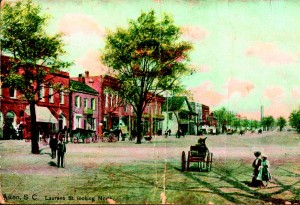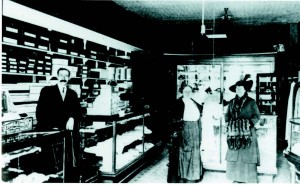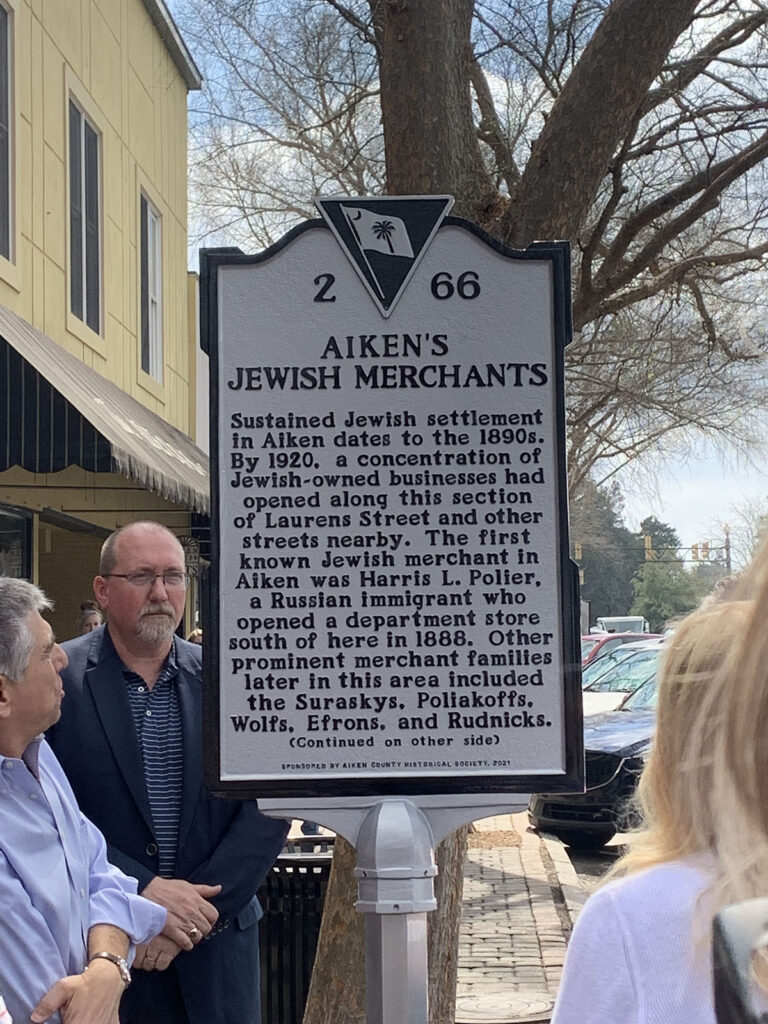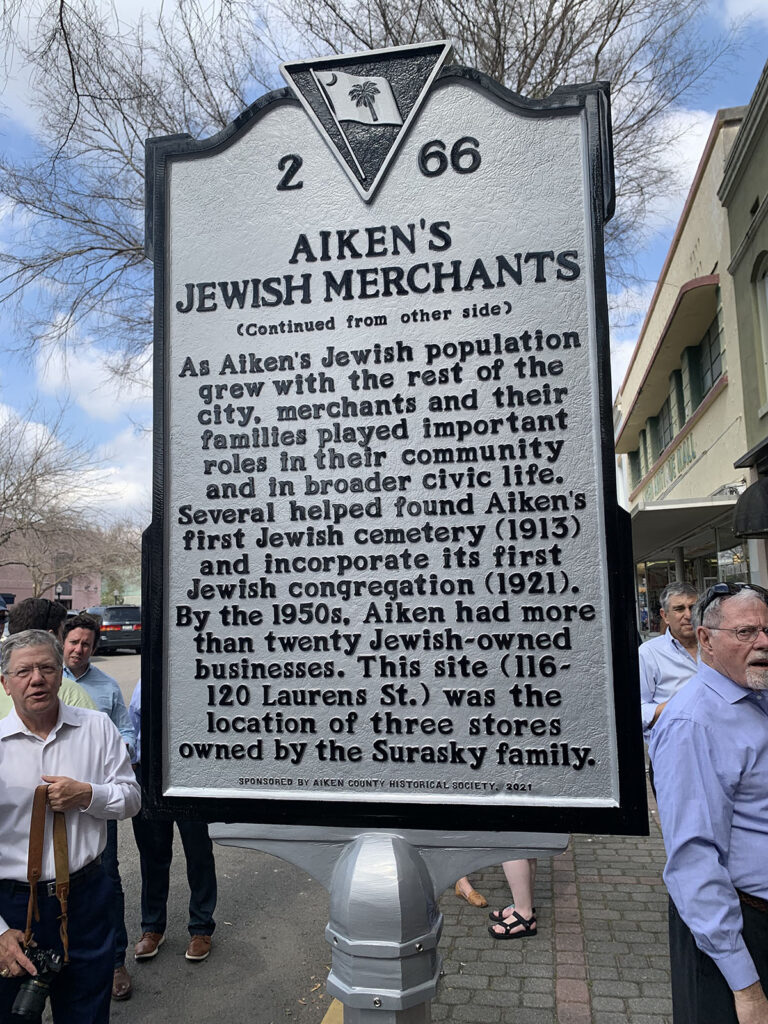Aiken History
Strangers in Paradise: A Century of Jewish Settlement in Aiken, SC
 Aiken is “a place you could only dream of in Europe,” wrote Hiram Surasky to wife Friedel in Poland in June 1902. “No matter what street you travel on here there are parks and alleys full of delightful aromas.” The Suraskys were among several members of their extended family who settled in Aiken, on the South Carolina side of the Savannah River, lured by descriptions of the town relayed by landsmen who preceded them. It is “paradise itself . . . the Garden of Eden.” A letter writer tells of mild winters and parks “between every street.” Most important of all, “we’re making a living here.”
Aiken is “a place you could only dream of in Europe,” wrote Hiram Surasky to wife Friedel in Poland in June 1902. “No matter what street you travel on here there are parks and alleys full of delightful aromas.” The Suraskys were among several members of their extended family who settled in Aiken, on the South Carolina side of the Savannah River, lured by descriptions of the town relayed by landsmen who preceded them. It is “paradise itself . . . the Garden of Eden.” A letter writer tells of mild winters and parks “between every street.” Most important of all, “we’re making a living here.”
Long before the first Jews arrived in Aiken, the town had acquired a reputation as a healthful spot and a retreat for people with pulmonary problems. Thus, in addition to farming and the mining of clay, tourism developed as a significant industry. By the 1890s, Aiken had become a sports and recreation center for hundreds of wealthy winter residents who came to ride horses, hunt, and play polo, golf, and tennis. The town’s year-round population more than doubled between 1889 and 1935, with the greatest growth occurring in the 1920s. Eastern European Jews contributed to this population spurt in a chain migration initiated by H. L. Polier, who came in search of better health.
Diagnosed with tuberculosis, Harris L. Polier settled in Aiken in the early to mid-1890s on the recommendation of his doctor. Accompanied by his wife and his brother, Mrs. M. S. Polier’s millinery shop, Laurens Street, ca. 1915. Courtesy of the Historic Aiken Foundation.
 Morris S., the Poliers opened two dry goods stores and encouraged their brother-in-law, Benedict M. Surasky, to join them. B. M. peddled, carrying an English-Russian dictionary with him, until the Poliers put him in charge of one of their stores. Just after the turn of the century, four more Surasky brothers and a sister left their hometown of Knyszyn, Poland, and followed B. M. to “paradise.” For one brother, however, the Garden of Eden became a nightmare. In 1903, while out in the country peddling, Abraham Surasky was brutally murdered by an anti- Semitic farmer whose acquittal compounded the tragedy with injustice.
Morris S., the Poliers opened two dry goods stores and encouraged their brother-in-law, Benedict M. Surasky, to join them. B. M. peddled, carrying an English-Russian dictionary with him, until the Poliers put him in charge of one of their stores. Just after the turn of the century, four more Surasky brothers and a sister left their hometown of Knyszyn, Poland, and followed B. M. to “paradise.” For one brother, however, the Garden of Eden became a nightmare. In 1903, while out in the country peddling, Abraham Surasky was brutally murdered by an anti- Semitic farmer whose acquittal compounded the tragedy with injustice.
According to her daughter Esther, when Sarah Anna Polier Surasky joined her husband B. M. in Aiken, the Polier families were not keeping kosher and had abandoned many other Jewish traditions. Sarah insisted on observing the laws of kashrut and immediately began taking routine train trips to Augusta, Georgia, to stock up on kosher products. In her zeal, Esther noted, she had “soon converted her relatives.” She and B. M., who had been a rabbinical student in Poland, were primary figures in the push to form a congregation. B. M. served as lay leader, acting as cantor and rabbi at services held in homes of the congregants or in the Masonic Hall above one of their stores. Sarah rejected B. M.’s qualifications as shohet (kosher butcher), however. Because he kept his store open on Saturdays—the day farmers came to town—she found his slaughtering of chickens unacceptable.

